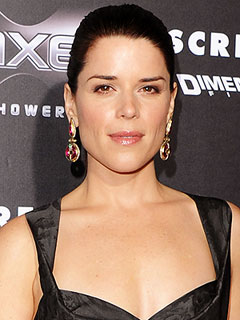NEW YORK (Reuters) - Stocks fell for a fifth straight day on Friday, putting the S&P 500 on track for its longest losing streak in three months, as the federal government edged closer to the "fiscal cliff" with no solution in sight.
President Barack Obama and top congressional leaders were set to meet to make a last-ditch attempt to avert the devastating tax hikes and spending cuts that threaten to the throw the economy into recession.
Energy shares were the weakest, with the sector <.gspe> slumping 1.4 percent. The group is closely tied to the pace of growth, and investors worry that if no deal is reached on the fiscal cliff, it could severely depress demand for crude oil.
Exxon Mobil
Obama and top lawmakers will meet at the White House later on Friday to work on a solution for the draconian debt-reduction measures set to take effect beginning next week.
Stocks, which have been influenced by little else than the flood of fiscal cliff headlines from Washington in recent days, lifted off lows after reports, which could not be confirmed, that Obama would offer a new plan to Republicans.
"We've been whipsawing around on low volume and rumors that come out on the cliff," said Eric Green, senior portfolio manager at Penn Capital Management in Philadelphia.
With time running short, lawmakers may opt to allow the higher taxes and across the board spending cuts to go into effect and attempt to pass a retroactive fix soon after the new year.
"The market doesn't think this will go on for months... it is pretty optimistic something will happen next week," said Green, who helps oversee $7 billion.
The Dow Jones industrial average <.dji> was down 74.25 points, or 0.57 percent, at 13,022.06. The Standard & Poor's 500 Index <.spx> was down 7.05 points, or 0.50 percent, at 1,411.05. The Nasdaq Composite Index <.ixic> was down 7.98 points, or 0.27 percent, at 2,977.93.
For the week, the S&P has dropped 1.3 percent, its worst weekly performance since mid-November. The Dow is also down 1.3 percent on the week while the Nasdaq has lost 1.4 percent.
Highlighting Wall Street's sensitivity to developments in Washington, stocks tumbled more than 1 percent on Thursday after Senate Majority Leader Harry Reid warned that a deal was unlikely before the deadline. But late in the day, stocks nearly bounced back when the House said it would hold an unusual Sunday session to work on a fiscal solution.
Positive economic data failed to alter the market's mood.
The National Association of Realtors said contracts to buy previously owned U.S. homes rose in November to their highest level in 2-1/2 years, while a report from the Institute for Supply Management-Chicago showed business activity in the U.S. Midwest expanded in December.
Barnes & Noble Inc
Shares of magicJack VocalTec Ltd
The U.S.-listed shares of Canadian drugmaker Aeterna Zentaris Inc surged 16.1 percent to $2.52 after the company said it had reached an agreement with the U.S. Food and Drug Administration on a special protocol assessment by the FDA for a Phase 3 registration trial in endometrial cancer with AEZS-108 treatment.
(Reporting by Ryan Vlastelica; Editing by Kenneth Barry)










